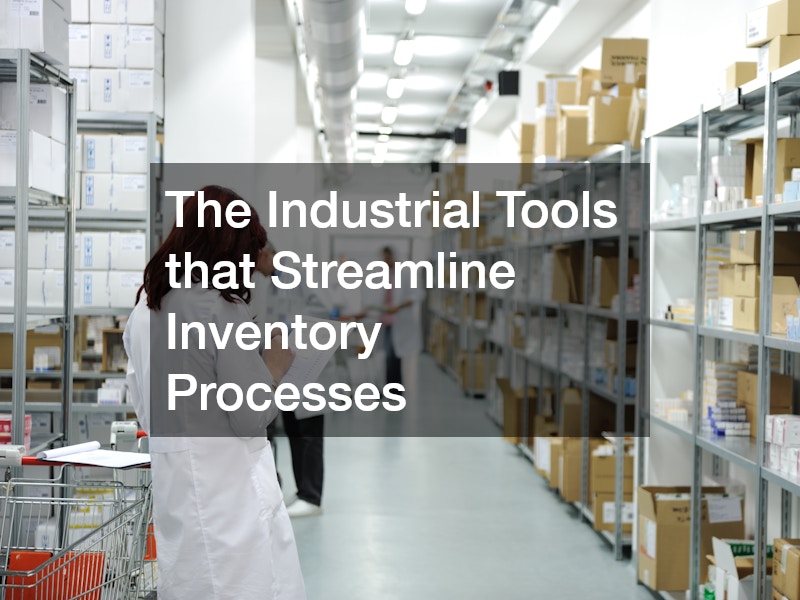Efficiency is key in today’s fast-paced business environment. Industrial tools are essential in optimizing these processes and streamlining them. This blog will explore how industrial tools can assist you in achieving your goals and give you the essential information you need to be aware of.
Acquiring Industrial Tools

It is important to know how to obtain industrial tools before you can understand the benefits. It can be difficult and costly, especially for smaller businesses. There are many options. Here are four options for acquiring industrial tools.
Buy
It is the easiest way to acquire industrial tools. Research and purchase the tools that you need at a reliable source. Consider buying used or refurbished items to save money. Before making a purchase, you should look for deals and discounts.
Rent
Renting industrial tools is a good option if you don’t want to buy equipment. It is particularly useful if the tools are only needed for a limited time period or for a specific project. Renting high-quality equipment can be a cheaper alternative to buying it outright.
Choose a rental company that specializes in the tools you require. You might require a forklift service provider for your business if you need forklifts to load and unload goods. You can choose from a variety of forklifts and flexible rental options.
Lease
Another option for acquiring industrial tools is leasing. The equipment is leased by paying a fixed monthly fee for a certain period of time. You can return the equipment at the end of the term or buy it for a discounted price. Small businesses love leasing because it allows them to access the latest equipment at a low upfront cost.
Government Programs
Some government programs provide funding or subsidies to purchase industrial tools. This is particularly true for industries considered to be essential or involved in research and development. Consider local or federal assistance programs to help you acquire the tools that your business requires.
You now have a better idea of how to purchase industrial tools. It’s important to consider the costs associated with maintenance and repairs. Budget for maintenance and repair costs, as well as any unexpected breakdowns.
You should also invest in training your employees so that they can use the tools correctly and maintain them, thereby extending their life and avoiding expensive repairs. Let’s move on to the advantages of industrial tools.
Increasing Efficiency With Measurement Tools
Industrial tools like measuring instruments and gauges will improve your efficiency. You can optimize your processes by accurately monitoring and measuring various aspects. This results in increased productivity and long-term cost savings. There are many other industrial tools that contribute to productivity and efficiency besides the measuring tools mentioned above.
- Cutting and Machining Tool – This includes drills, saws, lathes, and other equipment for cutting and shaping materials. High-quality cutting tools will improve accuracy and production speed.
- Material Handling Equipment – Forklifts and cranes are useful for moving heavy products and materials around. This improves productivity and decreases employee injury risks.
- Safety Tools: These include lockout/tagout, personal protective equipment, and safety guards for machines. Prioritizing safety at work can help you prevent injuries and accidents that can lead to expensive downtime or legal issues.
Industrial tools can also improve the efficiency of repair and maintenance operations. With the right tools, technicians can diagnose and fix problems quickly, reducing downtime for equipment and increasing productivity.
Save money on power tools and material handling equipment
Your business can save money and time by using power tools. These tools are faster than manual labor and can give you an edge on the market. They also require less effort on the part of employees, which reduces fatigue and injuries. Material handling equipment is also a way to improve efficiency and lower labor costs. These machines can move heavy loads safely and quickly, reducing the risk of employee injury. These four power tools and materials handling equipment can save you money:
- Cordless Drills: These versatile, portable tools can be used for a variety of tasks, including drilling, driving screws, and sanding. These drills do not require extension cords and can be used anywhere. Their versatility and efficiency can improve production or construction processes.
- Saws – Different types of circular saws or jigsaws can increase cutting speed and accuracy. These tools are portable and easy to use, which reduces the time and effort required for manual cutting.
- Forklifts: These materials handling machines can move heavy loads safely and quickly, reducing injuries and improving efficiency when loading, unloading, and transporting material. These machines can save time and effort by performing tasks that would require manual labor.
- Pallet Jacks: These tools are designed to efficiently move pallets without the use of a forklift. These pallet jacks are easy to use and cost-effective. Pallet jacks increase the efficiency of warehouses and production facilities. They reduce the time required to manually transport pallets.
Scalability of Modular Equipment
Scalable solutions are essential as your business evolves and grows. They can accommodate changing needs and increased demand. Modular equipment and industrial tools designed for scalability can be adapted to meet your expanding needs without the need for major changes or investments.
The scalability of industrial tools has allowed many industries to grow and stay competitive in their own markets. Singapore’s logistic industry, for example, has seen exponential growth over the past few years thanks to the use of scalable equipment, such as automated storage systems and retrieval devices. They were able to meet a large increase in demand without compromising safety or efficiency standards.
Three modular equipment options to help you scale your business effectively

- Modular Conveyors – These conveyor systems can be expanded or reconfigured easily to accommodate changes in production layouts or volume.
- Modular Workstations – These workstations can be customized and adapted to different tasks. This increases efficiency and reduces downtime.
- Modular Shelving – These storage solutions can be easily reconfigured or expanded to meet changing storage needs and inventory levels.
For businesses that want to increase efficiency, reduce costs, and scale up operations, it is vital to harness the power of industrial equipment. Understanding how to obtain, use, and maintain industrial tools is essential for businesses looking to improve productivity and safety.
This blog highlights the role of industrial tools as essential assets for achieving operational excellence and success. They can streamline processes, save costs, and facilitate growth.

Leave a Reply